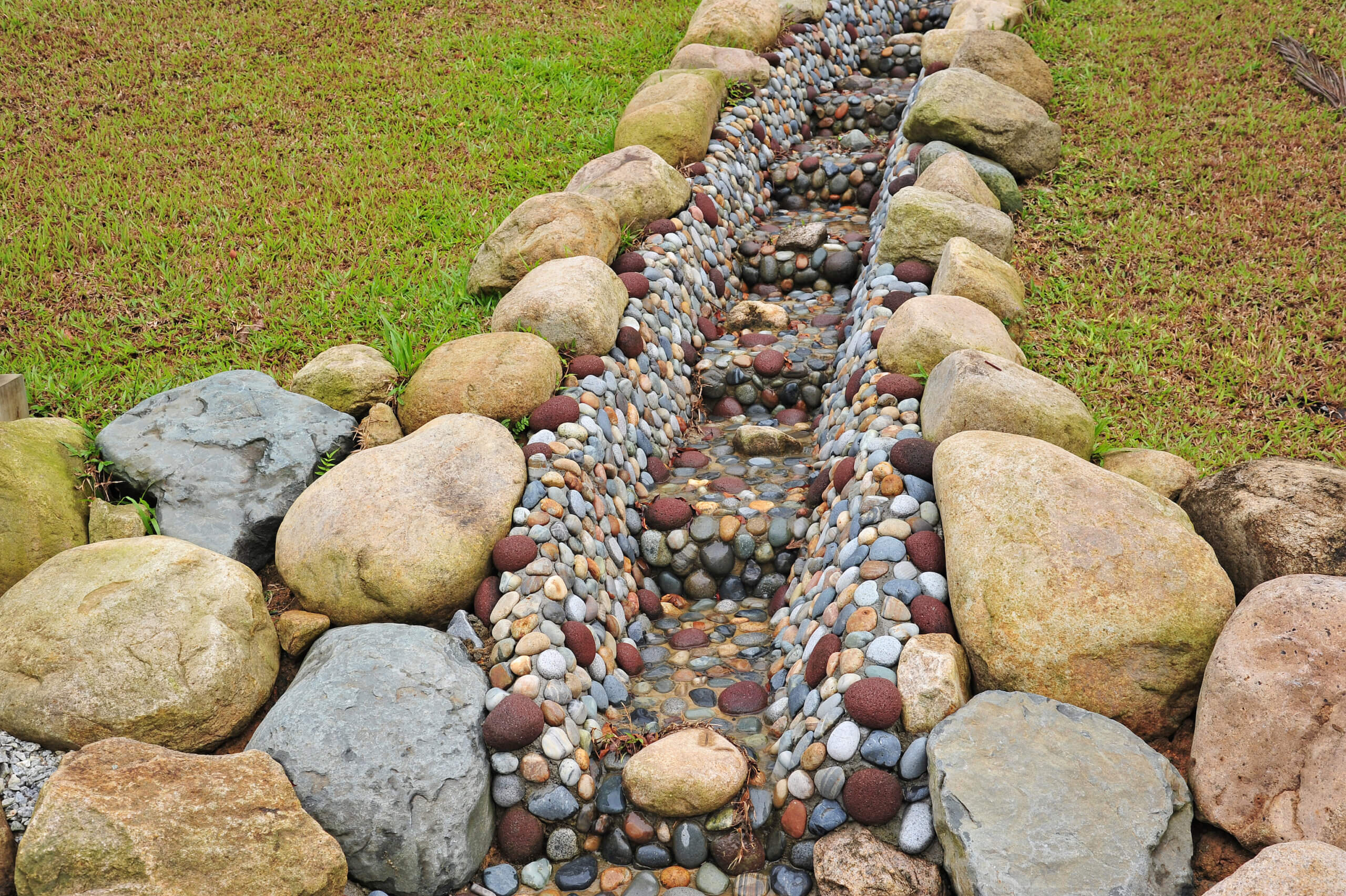Water drainage is an important consideration for any yard or garden. Poor drainage can lead to waterlogged soil, which can damage plant roots and encourage the growth of mold and mildew. Standing water can also be a breeding ground for mosquitoes and other pests. Fortunately, there are a few simple things you can do to improve water drainage in your yard.
Use an asphalt pavement
Asphalt paving is an excellent way to improve water drainage in your yard. Asphalt paving creates a flat surface that allows water to run off more easily, which can help to prevent flooding and reduce the amount of standing water in your yard. It is also more durable than other types of paving, such as concrete, so it will not crack or break down over time. Asphalt paving in Utah is a great way to improve the drainage in your yard and keep it looking its best.
Make sure that your gutters and downspouts are clear of debris
One of the best ways to ensure better water drainage in your yard is to make sure that your gutters and downspouts are clear of debris. This will help ensure that rainwater flows freely away from your home, which can help to prevent flooding and other problems. You can clean your gutters and downspouts yourself, or you can hire a professional to do it for you. Either way, it is important to keep them clear so that water can drain properly.
Consider installing French drains or other types of drainage systems
Many homeowners have trouble with water drainage in their yards. During heavy rains, water can pool in low-lying areas, creating muddy conditions and increasing the risk of flooding. Over time, this can damage your landscaping and lead to foundation problems. One way to improve water drainage is to install a French drain. French drains are underground systems that consist of a perforated pipe that is surrounded by gravel. The pipe collects water from the surrounding area and directs it away from your home. This can help to reduce the risk of flooding and soil erosion.
Make sure that your lawn is sloped away from your house
One of the best ways to ensure better water drainage in your yard is to make sure that your lawn is sloped away from your house. This will help to prevent water from pooling near the foundation of your home, which can lead to a number of problems including dampness in your basement or crawlspace, and even foundation damage.
Add organic matter to your soil
Another way to ensure better water drainage in your yard is to add organic matter to your soil. This can be in the form of compost, manure, or even leaves. The organic matter helps to increase drainage and reduce the risk of compaction. In addition, it helps to improve the structure of the soil, making it more porous and better able to absorb water. As a result, adding organic matter to your soil is an effective way to improve water drainage and reduce the risk of flooding.
Use raised beds or containers for your plants
Water is essential for plant life, but too much water can damage roots and lead to fungal growth. If you have a problem with water drainage in your yard, there are a few things you can do to improve the situation. One option is to use raised beds or containers for your plants. This will help to ensure that roots are not sitting in soggy soil. Another option is to create berms, which are small mounds of earth that can help to redirect water flow. Alternatively, you might want to consider planting drought-resistant plants, which are better able to tolerate wet conditions. By taking these steps, you can help to ensure that your plants stay healthy and thrive.
Avoid using chemicals on your lawn
Most people are familiar with the basic functions of a lawn: to provide a space for recreation, to improve the aesthetic value of a home, and to increase its curb appeal. However, lawns can also play an important role in water drainage. A healthy lawn helps to absorb rainfall and snowmelt, slowing down the flow of water and allowing it to seep into the ground rather than run off. This can help to reduce flooding and soil erosion, as well as recharge groundwater supplies. Additionally, lawns help to filter pollutants out of runoff water, keeping our waterways clean. To ensure that your lawn is able to perform these vital functions, avoid using chemicals on your grass. Chemicals can kill the helpful microbes that contribute to better drainage, meaning that your yard will be less effective at managing water runoff. Instead, focus on providing your lawn with the basic necessities: sunlight, water, and nutrients. With a little TLC, your lawn will be able to provide all the benefits of proper water drainage.
Consider planting native plants
Many people think that they need to water their lawns every day in order to keep them green and healthy. However, this is often not the case, and overwatering can actually cause more problems than it solves. If your yard has poor drainage, planting native plants can be a great way to improve the situation. Native plants are often better adapted to local conditions and require less water than non-native species. In addition, they can help to prevent erosion and improve the overall health of your yard. If you’re not sure what plants are native to your area, ask a local nursery or gardening center for advice. With a little planning, you can have a beautiful yard that is also healthy and drought-resistant.













Comments